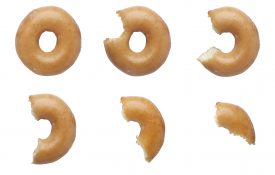-
New Research From Psychological Science
Read about the latest research published in Psychological Science: Brief Periods of Auditory Perceptual Training Can Determine the Sensory Targets of Speech Motor Learning Daniel R. Lametti, Sonia A. Krol, Douglas M. Shiller, and David J. Ostry Do alterations in the perception of speech affect speech motor learning? To test this, the authors had participants perform a perceptual-training task that was paired with a motor-learning task.
-
New Research From Clinical Psychological Science
Read about the latest research published in Clinical Psychological Science: Emotional and Behavioral Effects of Participating in an Online Study of Nonsuicidal Self-Injury: An Experimental Analysis Jennifer J. Muehlenkamp, Lance P. Swenson, Kristen L. Batejan, and Stephanie M. Jarvi Although there is a strong need for research on nonsuicidal self-injury (NSSI), it can be difficult to obtain institutional review board (IRB) approval for these types of studies. IRBs often worry that asking participants about their NSSI experiences might in some way harm them.
-
Moral Tales With Positive Outcomes Motivate Kids to Be Honest
A moral story that praises a character’s honesty is more effective at getting young children to tell the truth than a story that emphasizes the negative repercussions of lying, according to research published in Psychological Science, a journal of the Association for Psychological Science. The findings suggest that stories such as “The Boy Who Cried Wolf” and “Pinocchio” may not be effective cautionary tales when it comes to inspiring honest behavior in children. Stories have long been employed to instill moral and cultural values in young children, but there is little research exploring the effectiveness of such stories.
-
Minimizing Belief in Free Will May Lessen Support for Criminal Punishment
Exposure to information that diminishes free will, including brain-based accounts of behavior, seems to decrease people’s support for retributive punishment, according to research published in Psychological Science, a journal of the Association for Psychological Science. People who learned about neuroscientific research, either by reading a magazine article or through undergraduate coursework, proposed less severe punishment for a hypothetical criminal than did their peers. The findings suggest that they did so because they saw the criminal as less blameworthy.
-

It’s the Last Bite That Keeps You Coming Back for More
Your memory for that last bite of a steak or chocolate cake may be more influential than memory for the first bite in determining when you want to eat it again, according to research published
-

Sports Teams May Lose Out From Having ‘Too Much Talent’
As the FIFA World Cup kicks off and the NBA finals “heat” up, new research suggests that there is such a thing as having “too much talent” on a sports team. The research indicates that

